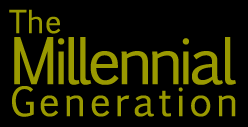Share:
There’s a new generation overrunning our departments: Millennials. They were born after 1980 and came of age in the new millennium. Also, they are becoming unavoidable in the workplace. I, like many others, have been frantically adapting my supervision style to match their needs. I find myself doing all the same things I’ve previously done, but more so. Where a quick thank you note twice a year used to make a staff member feel valued, now I do something every other week; and it better be electronic! Where I used to set expectations on the first day, I now review frequently.
I hadn’t really thought that much about these changes until recently.
One of my millennial staff had just made a mistake. Not a huge one, but one that made her feel a little stupid. She needed reassurance from me and I was trying to give it to her. Mistakes are how we learn, you’ll fix it, it’s going to be okay. Nothing seemed to work. Finally, I told her a story from my past as a piano student.
To be successful performing music, you must be able to move past mistakes.
At my level, it was pretty much guaranteed that I would hit a wrong note, so I had to get very good at moving past a mistake. My instructor frequently talked about mentally getting past mistakes. In lessons, after a wrong note, he would call out “think about what is next” or “flow to the next phrase.” Things to keep me focused on the future, not the past mistake. I eventually learned, even though I wanted to play the piece perfectly, how to hit a wrong note and not let it lead to more wrong notes.
So, back to my Millennial staff member. I told her about how important it is in music to refocus after a wrong note and keep going. That analogy seemed to make sense to her. Something clicked and she was able to start talking about our next task instead of rehashing her mistake. She put it behind her and did great work for the rest of the day. She has made mistakes since then too, but they haven’t brought her to the standstill of that first incident.
After this interaction, I realized that many of my supervisory techniques have been learned during piano lessons. I’ve started to reflect on a few other things that I do which I believe became part of my style due to my piano lessons.
Where do you get inspiration for your supervisory successes?


